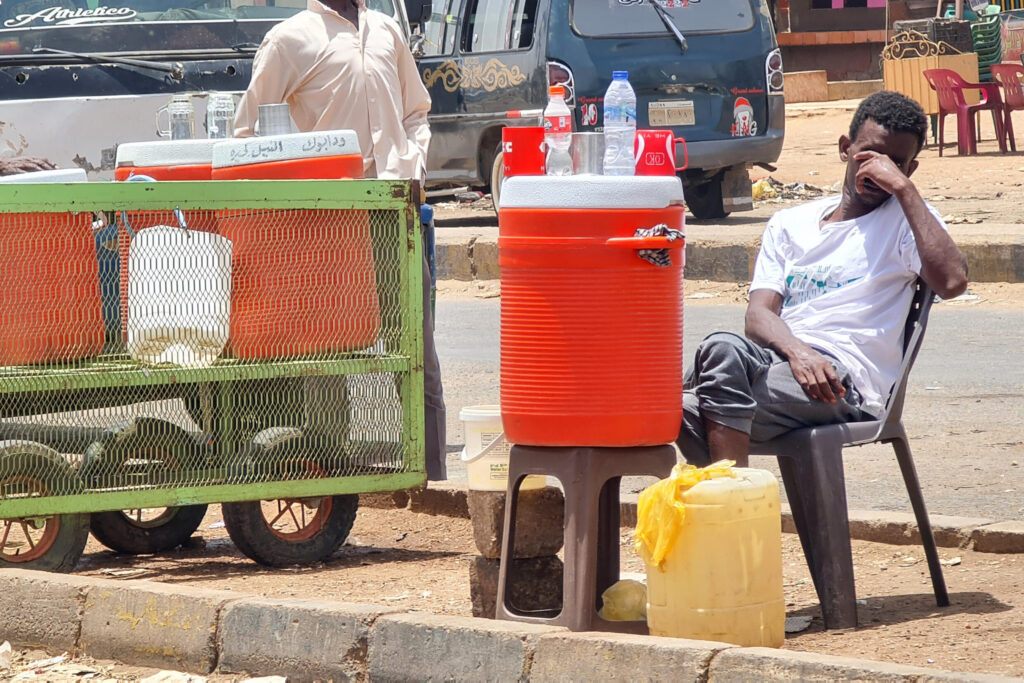
The war conditions in Sudan have forced journalists, engineers, and teachers to engage in alternative professions in the cities they fled to from the capital, Khartoum, to secure their families’ needs and confront life challenges.
With the continued armed clashes between the army and the Rapid Support Forces (RSF) in Khartoum, many journalists have lost their jobs, forcing them to migrate to safer states and seek other professions to earn a living and provide a decent life for their families and children.
Sudanese journalist Luay Abdelrahman, a correspondent for an Arabian Gulf country channel, lost his job from the first shots of the war and immediately went to the Al-Jazira State (in the center) to escape the bullets and the sound of gunfire in Khartoum.
Abdelrahman says, “Immediately after the war, I migrated directly to the Al-Jazira State. I lost my job for three months, and since the nature of the work is linked to production, and there is no official contract regarding a fixed monthly salary, financial transfers stopped immediately with the cessation of work. Therefore, I looked for alternative means to earn a living to provide for my children.”
He continued: “While I was on the Blue Nile, I thought of fishing. Indeed, I bought the tools and went to the Nile many times, successfully catching fish and distributing them to my family and neighbours. Additionally, I established a large farm at home with water available, where I planted various vegetables.”
On his part, journalist Omar Al-Kabashi says, “The start of my work in selling falafel was a result of the tight situation due to the war in Khartoum imposed on the people.”
Al-Kabashi explained, “We journalists suffered a lot, and I am one of the people who were supposed to continue in the journalism field, but the war prevented that due to the loss of housing. Therefore, I decided to pursue another profession.”
After his family was killed, Kabashi says he “miraculously survived death. After that, I headed to Al-Jazira State, especially since my mother suffers from diabetes.”
“I started selling vegetables, but the losses were significant. I tried selling falafel and did not succeed. Then I went to the city of Al-Hasaheisa and started working in buying and selling sheep. Then I started selling falafel and fruit salad, and it was a good experience.” He added.
Meanwhile, the high school teacher, Abdul Basit Ali, says that he searched for an alternative profession to teaching after schools stopped due to the war.
Ali mentioned that he had to work as a taxi driver in the city of Medani, the capital of Al-Jazira State, to provide for the daily expenses of his young children.
He added, “I work both morning and evening shifts, and I share the daily income with the taxi owner at the end of the day. I return to my children with food and fruits.”
“I hope for the war to stop and to return to my job in the teaching profession because I have worked in it for more than 20 years. The alternative profession is mentally and physically exhausting.” He said.
